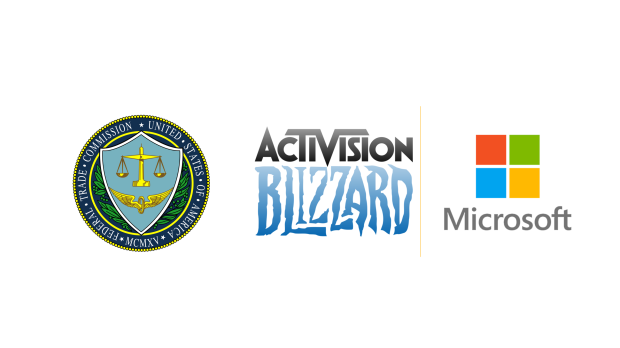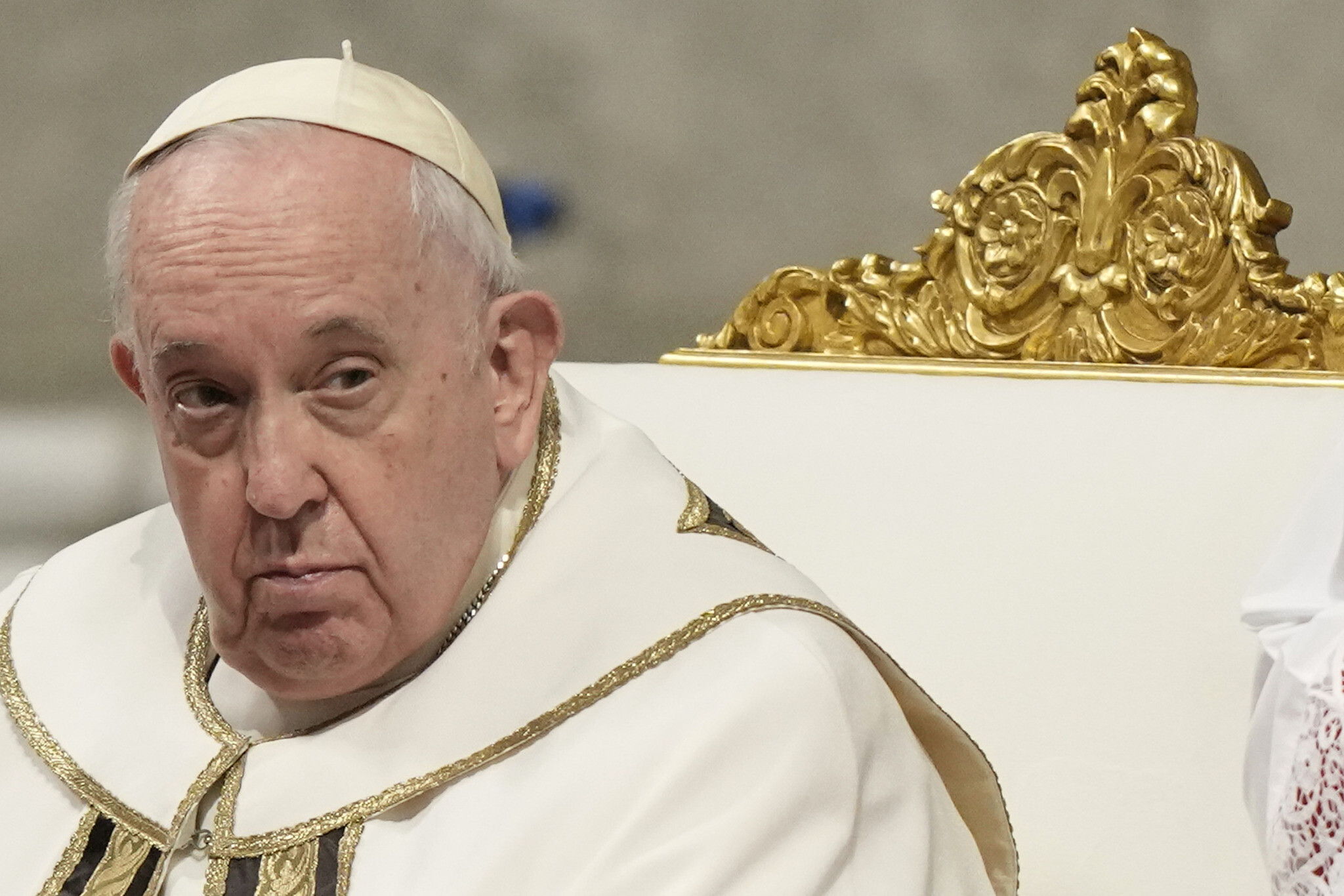FTC's Appeal Against Microsoft-Activision Merger Approval

Table of Contents
The FTC's Core Arguments Against the Merger
The Federal Trade Commission (FTC) believes the Microsoft-Activision Blizzard merger poses significant threats to fair competition within the gaming industry. Their appeal centers on two primary concerns: anti-competitive practices and the creation of a market-dominating monopoly.
Concerns about Anti-Competitive Practices
The FTC argues that the merger would allow Microsoft to stifle competition, particularly in the rapidly expanding cloud gaming market. This concern stems from Microsoft's potential control over incredibly popular Activision Blizzard titles.
- Reduced choice for consumers: Microsoft's control over franchises like Call of Duty, World of Warcraft, and Candy Crush Saga could significantly reduce consumer choice. Gamers might be forced to use Xbox services or face losing access to beloved games.
- Potential exclusion of competitors: The FTC worries that Microsoft could leverage its ownership of Activision Blizzard's IPs to exclude rival companies from accessing these key games, hindering their ability to compete effectively. This could impact both console and cloud gaming platforms.
- Increased barriers to entry for new players: The merger could create substantial barriers for new entrants in the cloud gaming market. A large, established company like Microsoft controlling such a significant portion of the market could make it difficult for smaller companies to gain a foothold.
Market Dominance and Monopoly Power
The FTC's appeal emphasizes the significant market power the combined entity would wield. The argument is that this merger would create a dominant player capable of manipulating prices and suppressing innovation.
- Microsoft's existing market share: Microsoft already holds a substantial market share in gaming consoles (Xbox) and PC gaming through Windows.
- Activision Blizzard's significant portfolio: Activision Blizzard owns a diverse portfolio of immensely popular game franchises, adding significantly to Microsoft's already considerable influence.
- The potential for Microsoft to leverage its dominance: The FTC fears that Microsoft could use its combined market power to harm competitors, potentially leading to higher prices, reduced innovation, and a less diverse gaming ecosystem.
Microsoft's Defense and Counterarguments
Microsoft counters the FTC's arguments with several key points, focusing on maintaining platform availability and highlighting potential benefits for gamers and developers.
Promises of Continued Multi-Platform Availability
Microsoft has consistently pledged to continue making Call of Duty and other Activision Blizzard titles available across multiple platforms, including PlayStation. This is a crucial argument in their defense.
- Long-term contracts proposed: Microsoft has offered long-term contracts to ensure the continued availability of key Activision Blizzard titles on competing platforms like PlayStation, aiming to address the FTC's concerns about reduced consumer choice.
- Argument that the merger would benefit gamers: Microsoft contends that the merger will benefit gamers through improved cross-platform play and wider accessibility of Activision Blizzard's popular games.
Investment in Game Development and Innovation
Microsoft also argues that the merger will stimulate further investment in game development, leading to more jobs and increased innovation within the gaming industry.
- Plans to expand game development studios and teams: Microsoft plans to significantly expand its game development resources, potentially leading to the creation of more games and enhanced gaming experiences.
- Investment in new technologies and gaming platforms: The combined resources could accelerate the development of new gaming technologies and platforms, potentially benefiting gamers with innovative experiences.
- Potential for creating more engaging and high-quality gaming experiences: Microsoft argues that the merger will facilitate the creation of even more engaging and high-quality games, ultimately benefiting consumers.
Potential Outcomes and Implications of the Appeal
The FTC's appeal against the Microsoft-Activision merger has far-reaching implications for the gaming industry and antitrust law.
Impact on the Gaming Industry
The outcome of this appeal will profoundly shape the future of mergers and acquisitions in the gaming industry and beyond.
- Setting a precedent for future antitrust actions: The decision will set a crucial precedent for future antitrust actions, particularly in the rapidly evolving tech sector.
- Potential impact on the prices of games and gaming services: The decision could influence the pricing strategies of gaming companies and the overall cost of games and services for consumers.
- Influence on the development and accessibility of new gaming technologies: The outcome will likely impact the development and accessibility of new gaming technologies, potentially affecting innovation and competition.
The Role of Regulators and Antitrust Laws
This case underscores the crucial role of regulatory bodies like the FTC in maintaining fair competition within the dynamic gaming market.
- The complexities of regulating mergers in rapidly evolving tech sectors: The appeal highlights the challenges regulators face in keeping pace with the rapid evolution of the tech sector and the complex nature of mergers in this space.
- The importance of considering consumer welfare in antitrust decisions: The FTC's arguments emphasize the importance of considering consumer welfare when making antitrust decisions, balancing the need for competition with the potential benefits of mergers.
- Balancing innovation with the prevention of monopolies: The case highlights the ongoing challenge of balancing the potential benefits of innovation with the need to prevent the formation of monopolies that could stifle competition.
Conclusion
The FTC's appeal against the Microsoft-Activision merger represents a pivotal moment in the gaming industry and antitrust law. The arguments presented by both sides highlight the complex interplay between market competition, technological innovation, and consumer welfare. The outcome will likely influence future mergers and acquisitions in the tech sector and set precedents for how regulators approach antitrust issues in the digital age. Staying informed about the developments in the FTC's Appeal Against Microsoft-Activision Merger is crucial for understanding the future trajectory of the gaming landscape. Follow the latest updates to see how this significant case unfolds.

Featured Posts
-
 The Passing Of Pope Francis Reflecting On His Papacy
Apr 22, 2025
The Passing Of Pope Francis Reflecting On His Papacy
Apr 22, 2025 -
 Strengthening Nordic Security The Role Of Swedish Tanks And Finnish Troops
Apr 22, 2025
Strengthening Nordic Security The Role Of Swedish Tanks And Finnish Troops
Apr 22, 2025 -
 The Value Of Middle Management Benefits For Companies And Employees
Apr 22, 2025
The Value Of Middle Management Benefits For Companies And Employees
Apr 22, 2025 -
 The Death Of Pope Francis A Global Loss
Apr 22, 2025
The Death Of Pope Francis A Global Loss
Apr 22, 2025 -
 Fsus Decision To Resume Classes After Shooting Sparks Debate
Apr 22, 2025
Fsus Decision To Resume Classes After Shooting Sparks Debate
Apr 22, 2025
